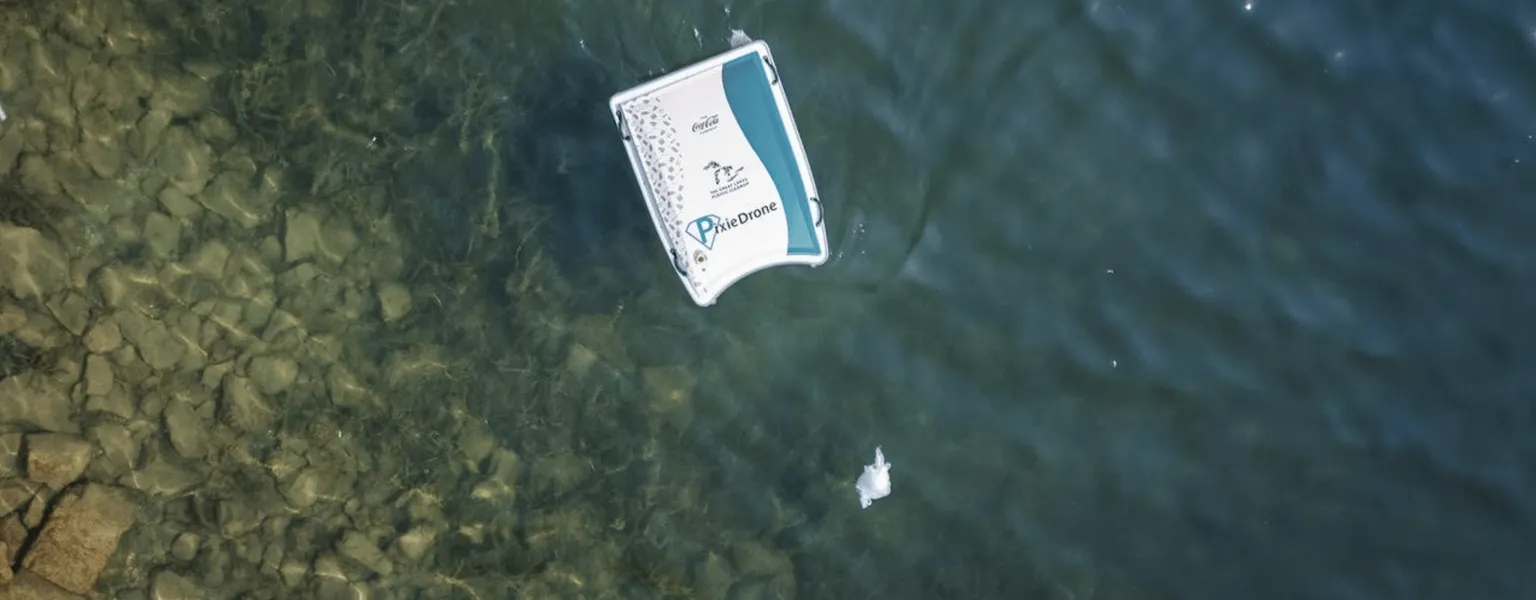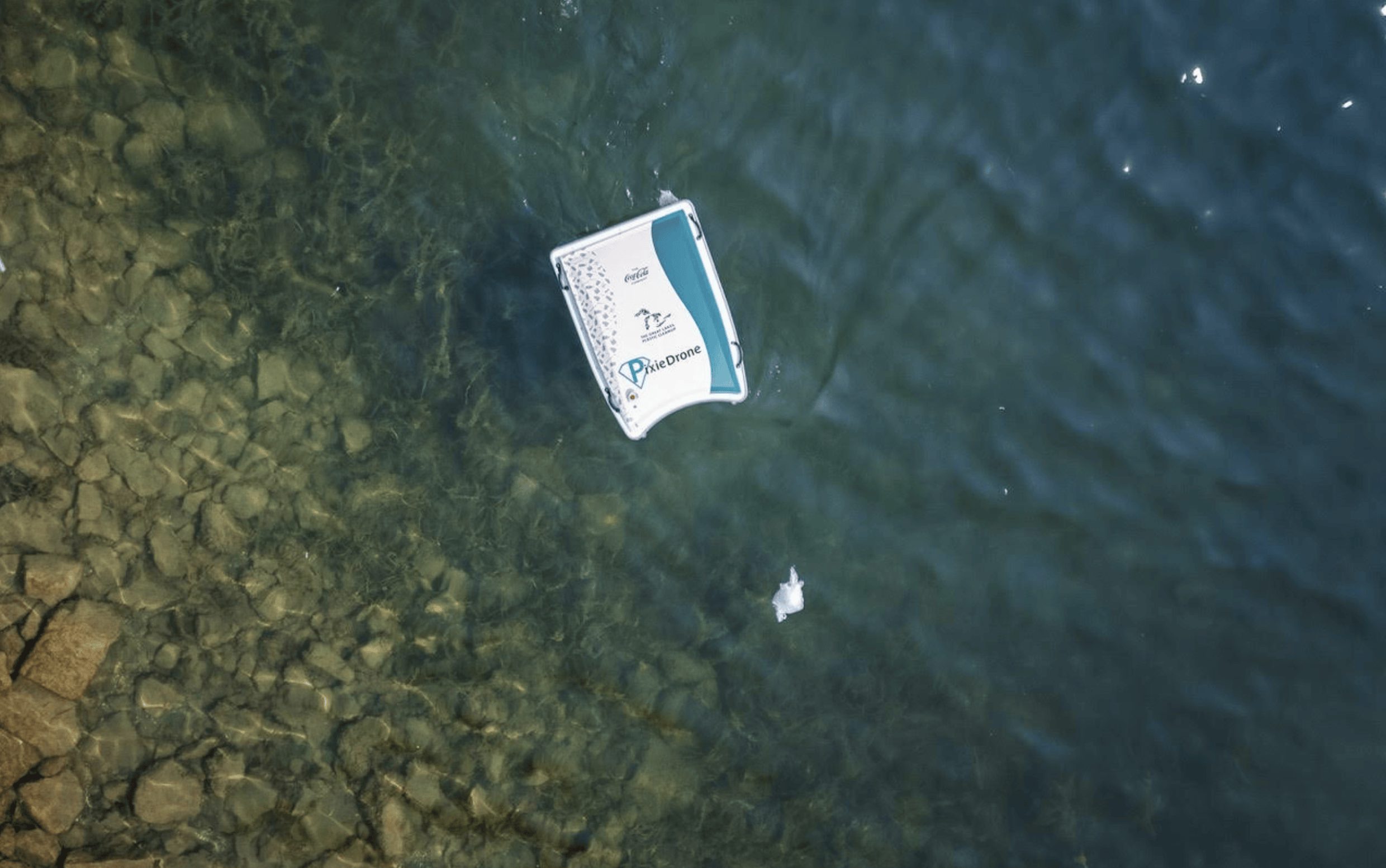Innovative drone tech targets plastic waste in Canada's Great Lakes

Sustainability
Coca-Cola Canada has teamed up with Pollution Probe, a Canadian non-profit organisation, to support the Great Lakes Plastic Cleanup initiative, the largest plastic cleanup effort in North America. Through this collaboration, Coca-Cola is sponsoring a remote-controlled mobile waste collector known as a PixieDrone, which will assist in removing floating debris, including plastic, from the Great Lakes.
The PixieDrone, funded by Coca-Cola, is part of a pilot project aimed at tackling plastic and other waste in the Great Lakes, the world’s largest freshwater system. The drone, which was recently tested on Lake Simcoe in Barrie, Ontario, will be deployed at additional cleanup sites throughout the Great Lakes region beginning in the spring of 2025.
The drone, dubbed the Coca-Cola PixieDrone, is designed to collect various types of debris, including plastic, glass, metal, paper, rubber, and organic materials. It has the capacity to collect up to 160 litres of waste, roughly the volume of a bathtub, during a single six-hour charge.

The data gathered from the waste collected by the drone will be analysed to gain a deeper understanding of the types and quantities of plastic and other materials polluting the Great Lakes.
Avi Yufest, Senior Director, Public Affairs, The Coca-Cola Company in Canada, said: We are proud to support Pollution Probe on this important initiative. Our company recognises its responsibility to help address the plastic waste crisis. Projects like this, in addition to packaging innovations and recycling efforts, are one of the ways we are working to help keep our waterways and environment clean from plastic debris.
The Great Lakes Plastic Cleanup, led by Pollution Probe and the Council of the Great Lakes Region, is currently active at over 150 locations across the Great Lakes, including the St. Lawrence River and Lake Simcoe. The new PixieDrone will join more than 135 other plastic-capture technologies already in use across the region. This initiative is supported by over 105 partners working collaboratively to address plastic pollution in the Great Lakes ecosystem.
Related News
-
Sustainability
Canadians show strong support for single-use plastics ban
-
Sustainability
Ontario welcomes Nespresso's Green Bag recycling programme
-
Sustainability
Coca-Cola's smartwater now available in aluminium cans
-
Sustainability
Coca-Cola trials 'label-less' packaging for Sprite on-the-go bottles
-
Sustainability
India's retail giant joins forces with Coca-Cola for PET collection and recycling




